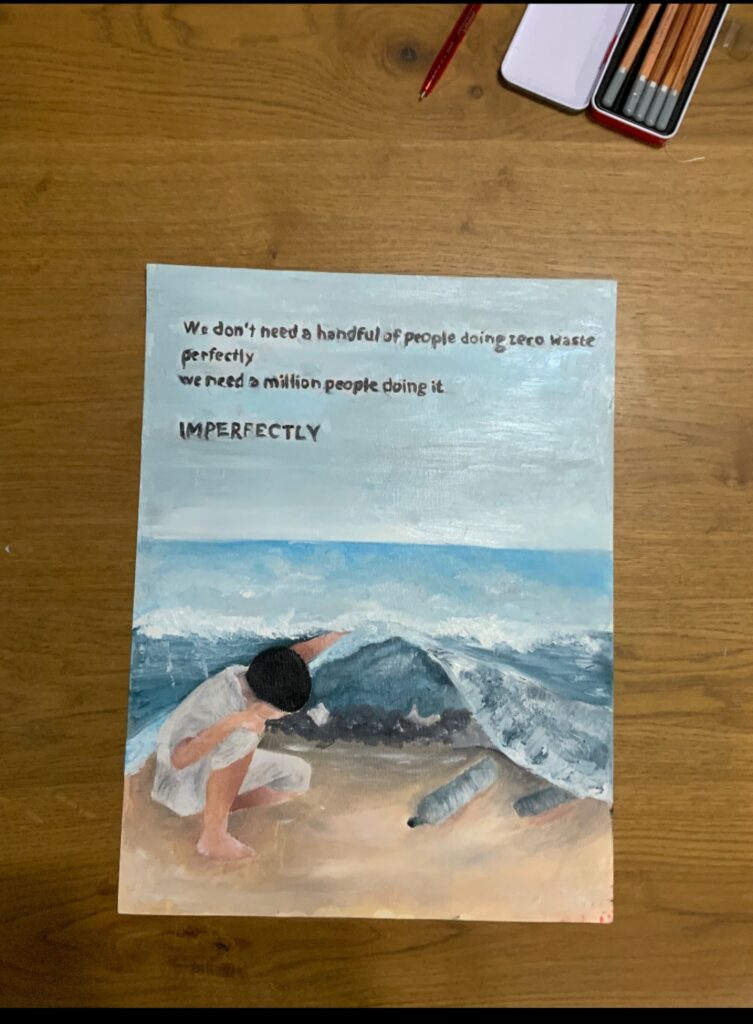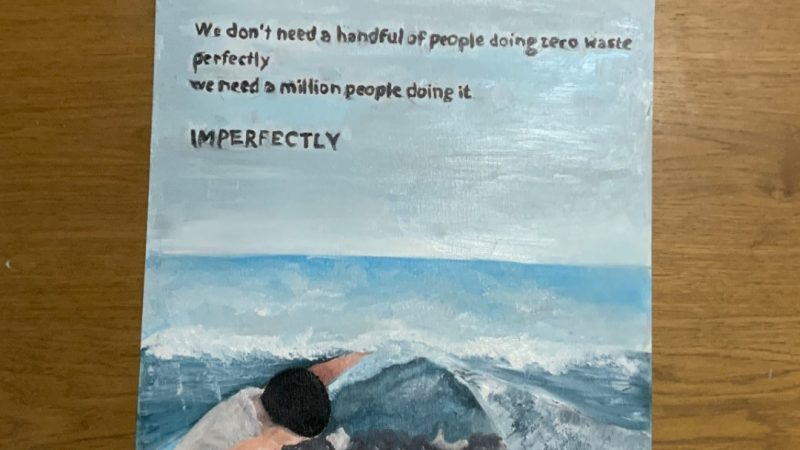The American Academy Larnaca is one of the nine oldest schools in Cyprus and it was founded in 1908. It is situated in the heart of Larnaca and it is surrounded by several businesses and organizations.
The teacher who coordinated the project firstly participated in the SALL workshop organized by the National Coordinator (University of Cyprus) during which an initial discussion regarding the project the school could undertake took place. The teacher and the students were familiar in advance with the implementation of school projects (mainly related to environmental education and entrepreneurship) in collaboration with external stakeholders and parents. The teacher and students also devoted a lot of time in order to study concepts related to the food system, as well as to identify potential collaborators in their local community. The initial concepts proposed by the teacher concerned recycling but through brainstorming with students they were able to propose project ideas to the school that concerned their local community in a greater extent. The teacher formed a group of eleven students to start the living lab in their school which were then divided into two groups with two different project goals. This decision was made in order to maximize participation since students expressed different interests.
Group 1 – Food wastage
Their idea was to minimize food waste by collaborating with local supermarkets in order to reuse expired canned food and unsold fruits and vegetables. The end goal was to not throw away expired canned food or fruits and vegetables and instead, finding alternative ways to deal with such food that will benefit people in need. To achieve their goal of minimizing food waste the students initially identified relevant societal actors and then decided to firstly contact their local supermarket since it was the most important collaboration they wanted to establish. They prepared a presentation for pitching their ideas to the supermarket about not throwing away expired canned food and instead finding alternative ways to utilize them. The supermarket was very pleased with these suggestions and they will participate in the living lab of the school next school year.
Another goal was to introduce the collection of cooking oil for turning it into biofuel in their school. While students were studying the problem of food waste, they came across the project of Tiganokini running by AKTI Project and Research Center in which many schools in Cyprus are already participating in. Students learned that they can bring cooking oil from their homes in order for the organization to collect it and turn it into biofuel by burning the oil to heat water and using the steam for electricity. Moreover, students studied the benefits of this project and found out that throwing oil harms the environment, it is a cheap way to produce electricity, the oil is commonly found in every house and is used in a variety of industries. During their meeting, the organization explained to students the process that needs to be followed to introduce Tiganokinisi in their school. They explained that they will place a big container in their school and then the students, staff and parents can bring the cooked oil from their home in small jars to collect it in big container. The school will then receive money which they can use for other projects.
Group 2- Creating materials to raise awareness:
The other aspect of their project concerns the reduction of plastic materials used by the students and the school cafeteria. The students decided to firstly raise awareness about the amount of waste their school produces and the impact of the use of plastic in our environment in different ways. To achieve their goal of reducing the plastic waste, students created posters regarding the reduction of plastic materials to raise awareness within the school. Furthermore, they did some research to identify different eco-friendly packaging options that they can later on promote. Specifically, they researched about biodegradable straws with the intention of replacing plastic ones in cafeterias. They visited also local cafes and restaurants to identify the products they normally use. They intend to start by promoting eco-friendly packaging to their cafeteria in order to test their service (e.g., how they can convince them to make a change, how can they present the change to the consumers) before contacting the local cafes.

CONTACT
Yvoni Pavlou
National coordinator – University of Cyprus
Mail
School website

